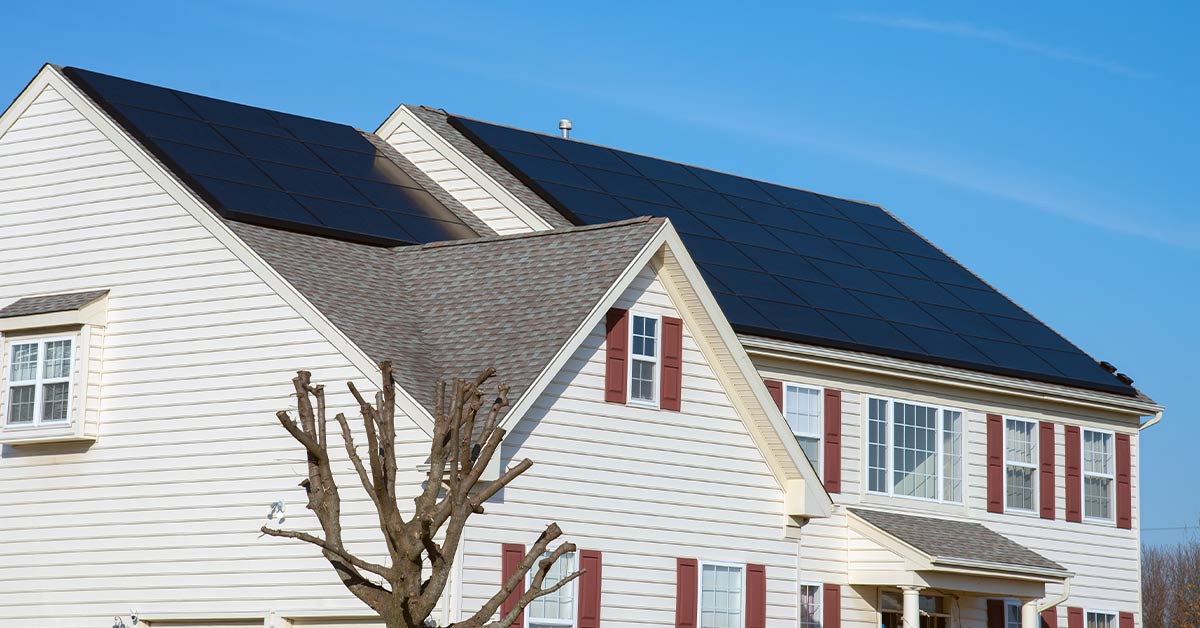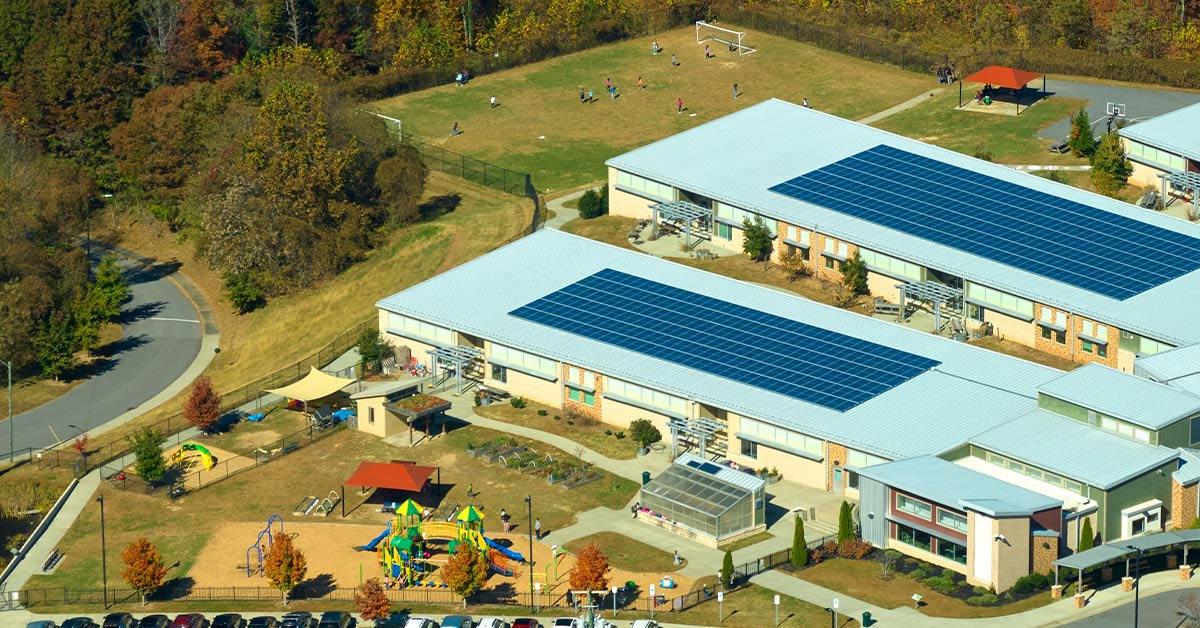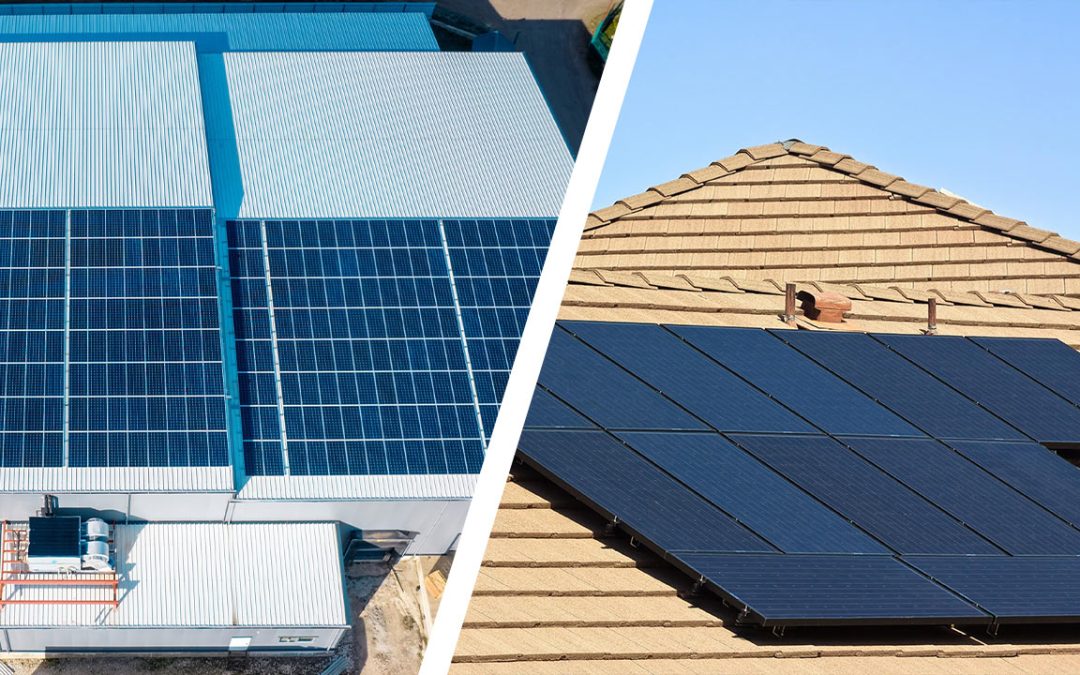Appearance
Commercial and residential solar panels are easily distinguishable by their appearance. The average commercial solar panel is significantly larger than residential solar panels, containing 96 cells at 78 inches by 39 inches. Meanwhile, residential panels are equipped with 72 cells and are 65 inches by 39 inches. Residents can opt for commercial-sized solar panels as long as they have the space and don’t mind the size; due to their ability to produce more power, they may be the more appealing choice for many homeowners.
These panel systems also tend to differ in color; most commercial solar panel systems are black panels on white backings, while residential customers tend to lean toward black panels on black backings for a more subtle appearance. However, whether you are seeking a commercial or residential-scale installation, you are free to select the color of your choice.

Cost-Efficiency
It makes sense that due to the larger scale installation, commercial solar projects cost more than a small residential system, but certain aspects of commercial systems come with higher costs. For example, upgrading an electrical panel will cost approximately $2,000 in a residential job, but a commercial job requires between $4,000 and $20,000 to upgrade the local transformer and other technical factors. Despite this, due to the scale of these projects, the cost per watt of commercial projects tends to be lower.
Commercial solar power beats out residential solar power by roughly 2% in terms of cost-effectiveness. Some contractors can save money on a cost-per-watt basis for commercial installations with set costs. When you buy additional hardware in bulk, you’ll see even more savings. Due to their larger size, commercial solar panels produce more power than residential panels and will cost more than smaller panels, but we calculate the price of solar panels by the power they produce, meaning a 4kW system will cost the same for either a commercial or residential solar system.
Installation
Both residential and commercial solar panels equip a bolted racking system for installation, but because the roof of a commercial building is usually flat, the mounting system can utilize non-penetrating ballasts. As a result, this makes commercial installation easier than residential installation. However, due to the sheer scope of commercial installations, some of which include more than 100 panels, it may take between a week and a month to install the system. On the other hand, residential solar systems tend to opt for 8-16 panels, and installation can be accomplished in a few days.

Permit Complexity
The start-to-finish process of a residential solar project is much quicker. Within 4 to 12 weeks, we can determine the size of your system, calculate financial benefits, and install the panels. On the other end of things, commercial solar projects take significantly longer for all involved parties, between 6 months and a year. Part of this is due to the process of securing permits; local jurisdictions are significantly more involved in reviewing your permit applications and plan sets. It generally takes around two weeks for the local permitting office to review all the paperwork, and from there we may have to revise the plans multiple times for more detail. These time differences can affect the sales process for companies that offer both residential and commercial systems.
Technical Execution
Another difference between residential and commercial solar contracting is the level of technical complexity. Because residential solar systems are on a much smaller scale, it’s fairly easy for the contractor to quickly identify and understand a technical problem and find cost-effective solutions to the issue. But commercial projects incorporate many more technical concepts, like electrical equipment at a higher rating of 2,000 or 3,000 amperes (amps). The contractor also has to figure out if the local lines can handle the solar backfeed to determine if you may need a transformer upgrade. Overall, the sheer number of interconnected moving parts makes commercial projects much more complex. It’s essential that an enterprise seeking to install solar can trust a contractor like Trinity Wiring Solutions with quality engineers and excellent in-house designers familiar with commercial projects to better streamline these processes.
If you’d like to implement a solar panel project for your business or home, Trinity Wiring Solutions is prepared to design and install a well-planned solar project perfect for every building and need. Whether you have more questions about the process or are ready for a full installation, contact us today to begin!
